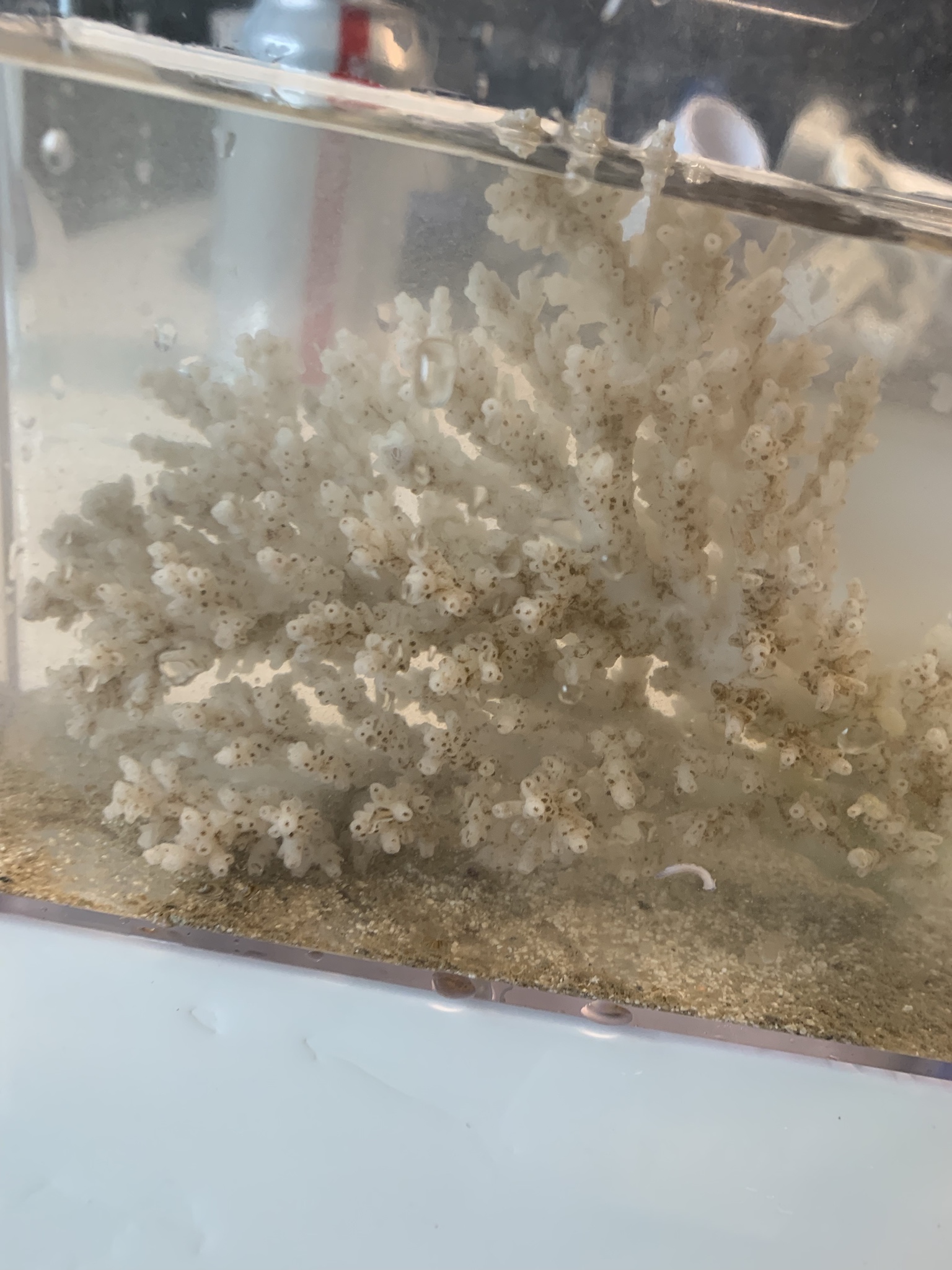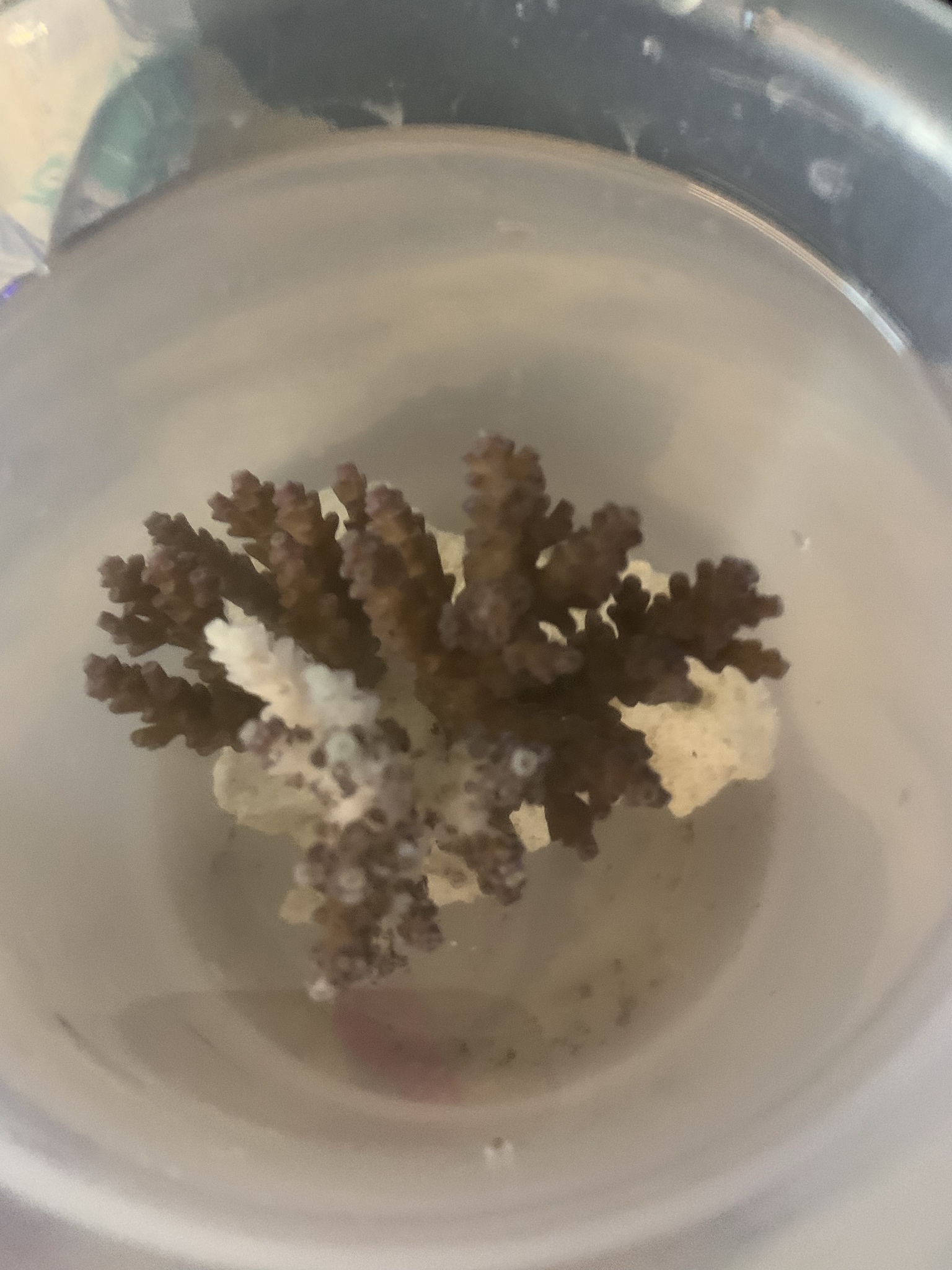Working very well against whatevers in that video, sure, maybe.Definitely can’t argue that his dip is working very well. Apparently his ability is underestimated.
Hey @Reefahholic
Do you have any affiliation with this product or company?
Follow along with the video below to see how to install our site as a web app on your home screen.
Note: This feature may not be available in some browsers.
Working very well against whatevers in that video, sure, maybe.Definitely can’t argue that his dip is working very well. Apparently his ability is underestimated.
This was my initial thought. There has to some affiliation to be pushing this so hard without any skepticism whatsoever.
This was my initial thought. There has to some affiliation to be pushing this so hard without any skepticism whatsoever.
For the sake of this discussion, can RTN and STN be interchanged?
I lost a 8" acropora aculeus colony yesterday that went from bright neon green (even out of blue lights) to this in a matter of 10 hours. I never seen one go so quick.

which caused my 5" tenuis to start to go as well.

If its parasites that are doing this, where do they go after they completely consume a coral?
Dang man, sorry to hear this. If you have that coral isolatated in water, you can send me a sample of that water and I’ll test it. I’ll post a video here. PM me if you’re interested.
Where do these parasites go? Who really knows.
I think they remain in the tank and feed on detritus and uneaten food. They’re probably in the rocks, sump, sand, etc. Just like Uronema, I believe they’re opportunistic and do not require a host. There’s probably thousands in all of our tanks.
I just changed the water last night. I'd be happy to send you some of water and one of the colony skeletons and maybe some of the sand if you would like and see if it helps.
I'm even more for credible scientists that can cogently elucidate their theory and explain the evidence that supports their theory. That's a basement-level requirement. It that's not present, then the entire structure collapses. In this particular case, there are far, far too many inconsistencies and logical fallacies present to be credible.I'm all for credible research, but prefer to wait until there is evidence of causation rather than just correlation.
Maybe from reading studies showing Vibrio bacteria also being a (a, not the) cause.
Ca1ore, check this out bro!
This was tonight.
The proper studies were done to prove Philaster protozoan is the cause of coral RTN. Over 600 RTN ing corals have been studied to date and 100% have The RTN parasite Philaster as the cause.I'm even more for credible scientists that can cogently elucidate their theory and explain the evidence that supports their theory. That's a basement-level requirement. It that's not present, then the entire structure collapses. In this particular case, there are far, far too many inconsistencies and logical fallacies present to be credible.
Ca1ore, check this out bro!
This was tonight.
I assume this Philaster protozoan is also found in the water column, and thus the need for a whole tank treatment is necessary for its eradication. Dipping the corals in his solution would get rid of the bulk of the Philaster on that particular coral and it should show signs of recovery? If used as a dip, why wouldn't a simple iodine based dip work just as well? I've dipped corals suffering from stn in many dips, I have not seen the coral improve in most cases.
The treatments are expensive to make because the ingredients cost a lot. It’s about covering cost of production.Of course anybody wants to make money. I would too.
Thank you for being open minded. I am the one that discovered them to be the cause of coral RTN with 600 corals from widespread sources and ALL cases of RTN in every type of coral in the hobby has the RTN parasite Philaster seen microscopically. They are 100% the cause every time confirmed microscopically. Normal healthy corals don’t have them. They are quite simply an infection and are spread coral to coral by swimming and infecting coral. I don’t believe stress has anything to do with it.I just stumbled on this thread and find it incredibly interesting. While I’m not necessarily buying the “This is the parasite that is the cause for every single RTN event ever” theory quite yet, it is most definitely worth looking into. I’m actually really surprised that it’s being so readily dismissed.
Maybe the critter is an opportunist, maybe it does need a stress event to take over. But, on the other hand, maybe our corals are RTN’ing after otherwise survivable stresses due to a parasite. Bottom line is, we don’t know. This is neat and has potential to be a big discovery, bigger than our aquarium hobby if it pans out to be true.
While I won’t be lining up to declare war on these things, I will most definitely be watching this unfold.
There is credible evidenceI'm all for credible research, but prefer to wait until there is evidence of causation rather than just correlation.
